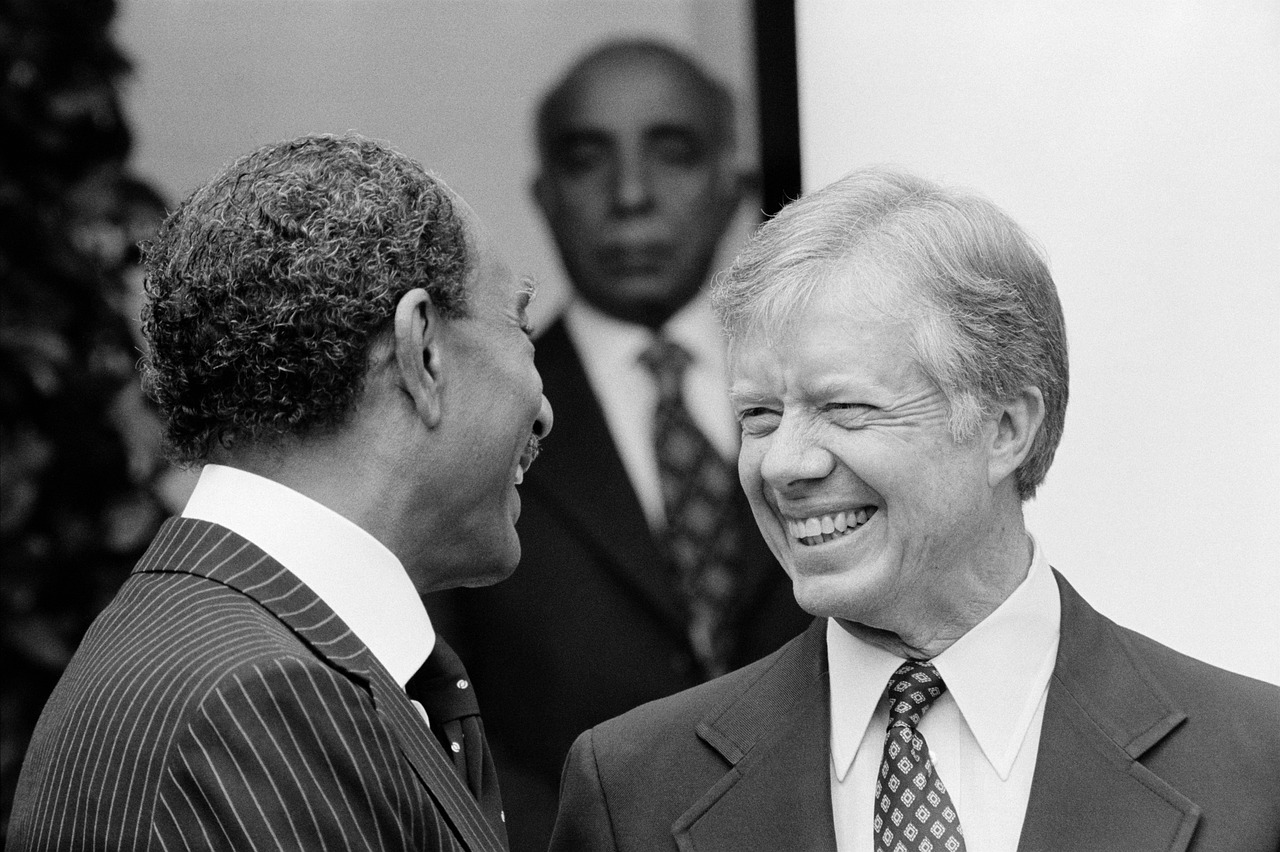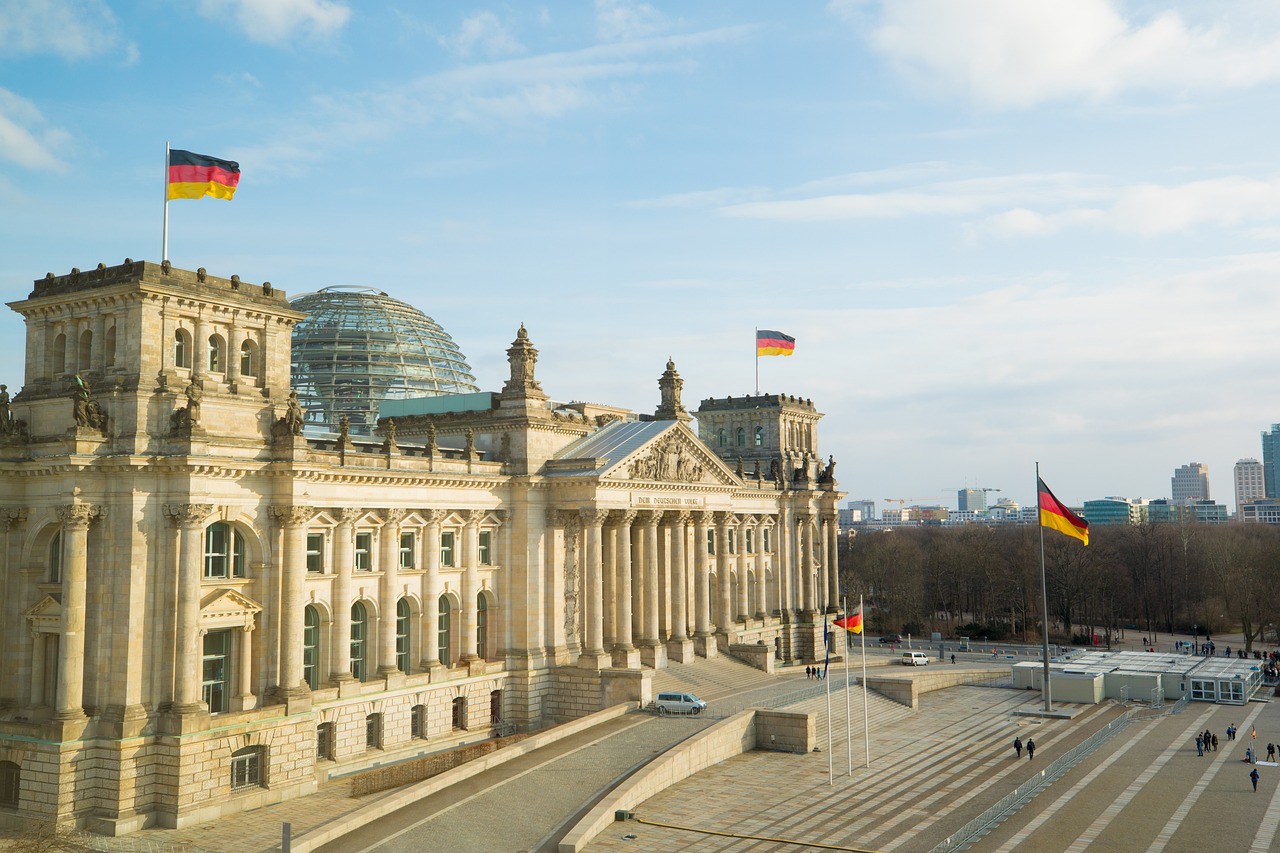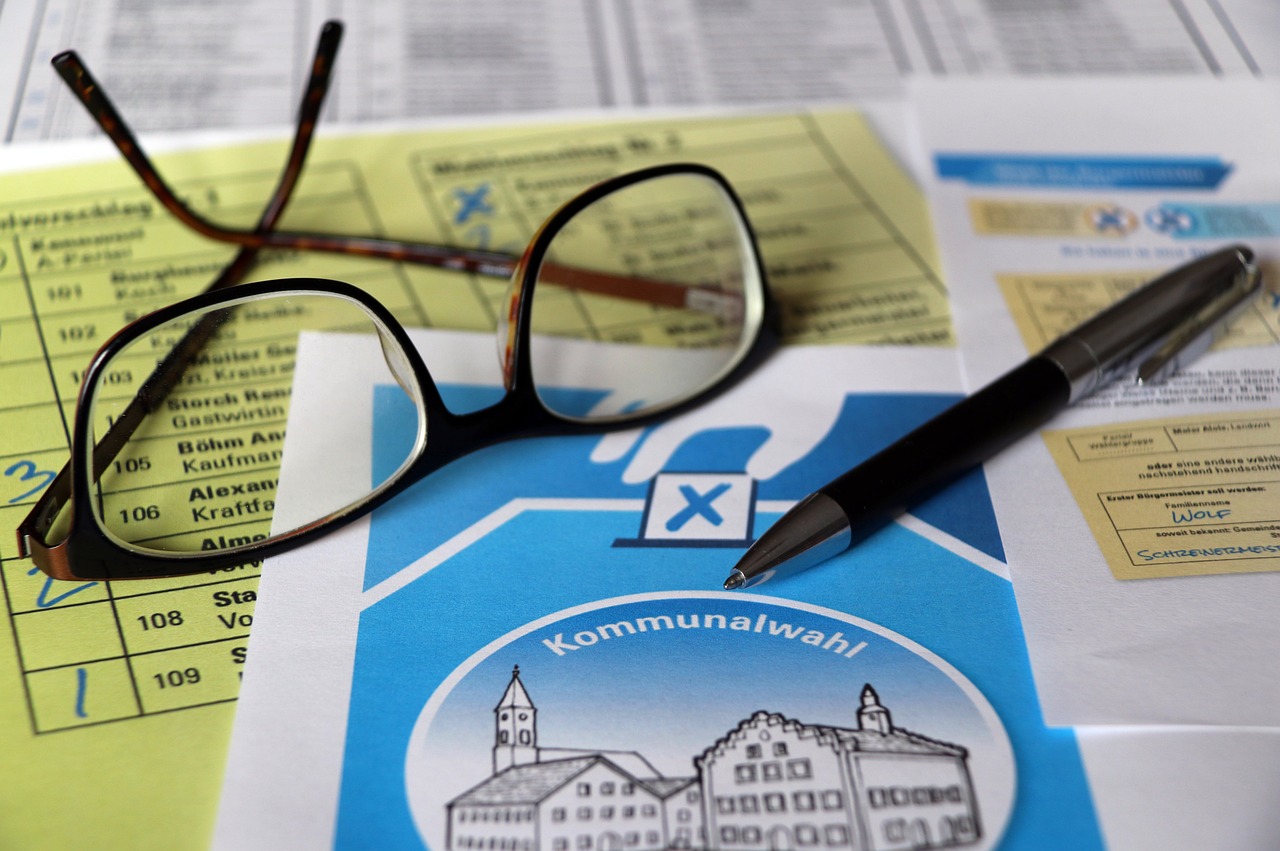Exploring Jacques Derrida's Political Philosophy
Jacques Derrida, a name that often evokes a sense of intrigue and complexity, has significantly influenced the landscape of political philosophy. His work, characterized by the concept of deconstruction, invites us to question the very foundations of our political ideologies and the texts that shape them. But what does it mean to engage with Derrida's thought? Is it merely an academic exercise, or does it have real-world implications? In this article, we will dive deep into the intricacies of Derrida's political philosophy, examining his unique approach and its relevance in today's political discourse. By exploring his key concepts, influences, and critiques, we aim to shed light on how Derrida's ideas continue to resonate and challenge our understanding of power, language, and responsibility.
At the heart of Derrida's philosophy lies the concept of deconstruction. This methodology is not just about dismantling texts; it's about revealing the hidden assumptions and contradictions within them. Imagine peeling back the layers of an onion, where each layer represents a different interpretation or meaning. Derrida's approach encourages us to question the stability of meaning and to recognize that texts are never closed or definitive. Instead, they are open to interpretation and reinterpretation, reflecting the fluidity of language and thought. In political discourse, this means that ideologies are not fixed; they are subject to change and reinterpretation based on context and perspective. By deconstructing political texts, we can uncover the underlying power dynamics and biases that often go unnoticed.
Derrida's work is deeply intertwined with post-structuralism, a movement that challenges the idea of fixed meanings and stable structures in language and thought. Post-structuralism posits that meaning is always in flux, shaped by cultural, historical, and social contexts. For Derrida, this means that political ideologies cannot be understood in isolation; they must be examined in relation to other texts, discourses, and power structures. This interconnectedness allows us to see how various ideologies influence one another and how they are often constructed through the interplay of language and power.
Derrida emphasizes the intricate relationship between language and power. Language is not just a tool for communication; it actively shapes our political realities. Think about how political speeches are crafted to evoke certain emotions or to frame issues in a particular light. Language can empower or marginalize, liberate or oppress. By analyzing the language used in political discourse, Derrida invites us to consider how it constructs societal norms and influences our understanding of authority and governance. This perspective leads us to question who gets to speak, whose voices are amplified, and who remains silenced.
The role of signifiers in political discourse is crucial to understanding how meanings are constructed and deconstructed. Signifiers are the words and symbols we use to communicate ideas, but their meanings are not always fixed. For instance, the term "freedom" can evoke vastly different interpretations depending on the context in which it is used. Derrida's analysis reveals that meanings are often unstable and contingent, leading us to reconsider how we engage with political language. This instability can be both a challenge and an opportunity, as it opens the door for new interpretations and understandings of political concepts.
Another important aspect of Derrida's thought is intertextuality, which refers to the interconnectedness of texts and the idea that no text exists in isolation. Every political text is influenced by other texts, historical contexts, and cultural narratives. This perspective encourages a more nuanced analysis of political discourse, as it allows us to see how different ideas and ideologies interact with one another. By examining the intertextual relationships in political texts, we can uncover the layers of meaning that contribute to our understanding of political issues.
Derrida's political philosophy raises profound questions about ethics and responsibility. He challenges us to think about our ethical obligations in the political sphere. What does it mean to be responsible in a world where meanings are constantly shifting? Derrida encourages us to engage with the complexities of our political realities and to consider the ethical implications of our actions and beliefs. This call to responsibility is particularly relevant in today's political climate, where issues of justice, equity, and representation are at the forefront of public discourse.
While Derrida's contributions to political thought are significant, his work has not been without criticism. Some argue that his ideas can be overly abstract, making them difficult to apply in practical political contexts. Others contend that his focus on deconstruction can lead to a sense of nihilism, where all meaning is seen as equally valid. However, it is essential to engage with these critiques to gain a balanced understanding of Derrida's philosophy and its implications for political discourse.
Derrida's ideas are often misinterpreted or misapplied in political contexts. For example, some may mistakenly view deconstruction as a form of relativism, where all viewpoints are considered equally valid. This misunderstanding can lead to a paralysis of action, where individuals become hesitant to take a stand on important issues. By clarifying Derrida's intentions and emphasizing the critical nature of his thought, we can better appreciate the potential of his philosophy to inform political engagement.
Derrida's political philosophy continues to resonate in contemporary debates and movements. His insights into language, power, and ethics provide valuable tools for analyzing current political issues, from social justice movements to global governance. As we navigate an increasingly complex political landscape, Derrida's ideas remind us of the importance of critical engagement and the need to question our assumptions. His legacy serves as a call to action, urging us to remain vigilant in our pursuit of justice and equity in an ever-changing world.
- What is deconstruction in political philosophy? Deconstruction is a method of analysis that reveals the hidden assumptions and contradictions within texts, allowing for a deeper understanding of political ideologies.
- How does Derrida's work relate to post-structuralism? Derrida's work is deeply rooted in post-structuralist thought, which challenges fixed meanings and emphasizes the fluidity of language and interpretation.
- What is the significance of language in Derrida's philosophy? Language shapes political realities and influences power dynamics, making it essential to analyze the language used in political discourse.
- Why is intertextuality important in political texts? Intertextuality highlights the interconnectedness of texts, allowing for a more nuanced understanding of political issues and ideologies.
- What ethical questions does Derrida raise in his political philosophy? Derrida challenges us to consider our ethical obligations in the political sphere and the implications of our actions and beliefs.

The Concept of Deconstruction
At the heart of Jacques Derrida's philosophical inquiry lies the concept of deconstruction. This term, often misunderstood and misapplied, refers to a method of critical analysis that seeks to unravel the complexities embedded within texts, ideas, and social constructs. Deconstruction is not merely about tearing down or negating; rather, it is an intricate dance of revealing the underlying assumptions and contradictions that shape our understanding of meaning. Imagine peeling back layers of an onion—each layer represents a different interpretation or perspective, and as you peel, you expose the core, which is often more nuanced and ambiguous than it first appears.
Derrida's approach challenges the traditional notions of fixed meanings and authoritative interpretations. In a world that often demands clear-cut answers and binary oppositions, deconstruction invites us to embrace complexity and ambiguity. It asks us to consider the unstable nature of language—how words can shift in meaning depending on context, usage, and the interplay of power dynamics. For Derrida, every text is a web of signifiers, each pointing to other signifiers, creating a chain of meanings that is never fully complete. This notion leads us to question: Can we ever truly grasp the full meaning of a political text, or are we merely grasping at shadows?
To illustrate this, let’s consider how deconstruction operates within political ideologies. Take, for instance, the term “freedom.” At face value, it seems straightforward, but when we deconstruct it, we uncover a multitude of interpretations influenced by cultural, historical, and social contexts. What does freedom mean for different groups? How do power dynamics shape our understanding of freedom? By deconstructing such terms, we can see how they are laden with implications that often go unexamined.
Furthermore, deconstruction is not limited to textual analysis; it extends to the realm of political discourse itself. Political speeches, manifestos, and policies are ripe for deconstruction. They are not just statements of intention but are imbued with ideologies, biases, and power relations. When we engage in deconstruction, we reveal the assumptions that underpin these texts, allowing for a more critical engagement with political realities. This method encourages us to ask questions like:
- What ideologies are being promoted?
- Who benefits from these narratives?
- What voices are marginalized or silenced?
In summary, deconstruction serves as a vital tool for unpacking the complexities of language and meaning within political contexts. It pushes us to look beyond surface interpretations and confront the intricate web of signifiers that shape our understanding of politics. By applying deconstruction, we can foster a more nuanced discourse that embraces the fluidity of meaning, ultimately enriching our political engagement and understanding.

Influence of Post-Structuralism
When we talk about post-structuralism, we're diving into a rich and complex intellectual tradition that significantly shaped Jacques Derrida's political philosophy. At its core, post-structuralism challenges the idea that meaning is fixed and stable, suggesting instead that meaning is fluid and often contingent on context. This notion is pivotal in understanding how Derrida critiques established political ideologies and power structures. By rejecting the idea of a singular, authoritative interpretation, Derrida opens the door for multiple perspectives, allowing for a more nuanced discussion of power dynamics in society.
Derrida's post-structuralist approach emphasizes the instability of language and meaning, which he argues is a fundamental aspect of political discourse. This instability means that political texts and speeches can be interpreted in various ways, leading to different implications for political action and understanding. For instance, a political manifesto might be seen as a call to arms by one group, while another might interpret it as a plea for peace. This multiplicity of meanings reflects the inherent complexities of political life, where context and interpretation play critical roles.
Incorporating ideas from other influential thinkers, Derrida’s work resonates with the broader post-structuralist movement. Thinkers like Michel Foucault and Roland Barthes also explored the relationship between language, power, and meaning, albeit from different angles. Foucault's examination of power relations and Barthes' ideas on authorship and textuality complement Derrida's theories, creating a rich tapestry of thought that critiques traditional political frameworks.
One of the most significant contributions of post-structuralism to Derrida's political philosophy is its insistence on the importance of context. This means that the political implications of any text cannot be fully understood without considering the cultural, historical, and social contexts in which it was produced. For example, the meaning of a political slogan can shift dramatically depending on the time and place it is used. This perspective encourages readers and political actors to be aware of the broader implications of their interpretations, fostering a more critical engagement with political texts.
Moreover, Derrida's philosophy invites us to question the assumptions underlying our political beliefs. By deconstructing established narratives, he challenges us to consider whose voices are heard and whose are marginalized. This critical lens not only helps to uncover biases in political discourse but also empowers individuals to seek out alternative viewpoints. In this way, Derrida's post-structuralism encourages a more democratic engagement with politics, where diverse perspectives can coexist and contribute to a richer understanding of societal issues.
In summary, the influence of post-structuralism on Jacques Derrida's political philosophy is profound and multifaceted. It reshapes our understanding of meaning, power, and interpretation in political contexts, urging us to embrace complexity and multiplicity. By recognizing the fluid nature of language and the importance of context, Derrida encourages a more inclusive and critical approach to political discourse. This legacy continues to resonate today, reminding us that in the world of politics, nothing is ever as straightforward as it seems.

Language and Power Dynamics
Language is not just a means of communication; it is a powerful tool that shapes our understanding of reality, especially in the realm of politics. Jacques Derrida, a profound thinker, argues that language is intricately connected to power dynamics in society. He posits that the way we use language influences not just our thoughts but also the structures of power that govern our lives. Imagine language as a double-edged sword: it can unite people under a common cause or divide them through misunderstanding and manipulation.
Derrida’s exploration of language reveals that meanings are not fixed; they are fluid and subject to interpretation. This instability is crucial in political discourse, where words can be weaponized to either uphold or challenge authority. For instance, consider the political slogans that rally masses. These phrases, while seemingly straightforward, often carry layers of meaning that can shift depending on context and audience. This is where Derrida's concept of deconstruction comes into play, urging us to peel back the layers of meaning to uncover the underlying power structures.
In political contexts, the relationship between language and power can be illustrated through the following dynamics:
- Framing: The way an issue is framed can significantly influence public perception. For example, calling a military intervention a "peacekeeping mission" alters the narrative and justifies the action.
- Rhetoric: Politicians often employ rhetorical strategies to persuade and manipulate. The choice of words can evoke emotions, create urgency, or instill fear, demonstrating the potency of language in shaping political realities.
- Exclusion: Language can also serve to include or exclude certain groups from political discourse. The use of jargon or complex terminology can alienate those who are not part of the political elite, reinforcing existing power hierarchies.
Furthermore, Derrida emphasizes the role of signifiers—the words and symbols we use—in constructing political meaning. Each signifier carries its own connotations and associations, which can vary widely across different cultures and contexts. This variability complicates the notion of a universal political language, as what resonates in one community may be interpreted entirely differently in another. For instance, the word “freedom” can evoke a sense of empowerment in one context while being associated with chaos and disorder in another.
Moreover, Derrida's insights into intertextuality—the interconnectedness of texts—further illuminate the complexities of political language. Political speeches, manifestos, and even social media posts do not exist in isolation; they are part of a larger tapestry of discourse that reflects and shapes societal values and beliefs. By analyzing the intertextual relationships between various political texts, we can uncover the subtle ways in which language reinforces or challenges power dynamics.
In conclusion, Derrida's exploration of language and power dynamics reveals the profound impact that our words have on political realities. Understanding this relationship is essential for anyone engaged in political discourse, as it equips us to critically analyze the language used by those in power and recognize the potential for manipulation. By embracing Derrida's deconstructive approach, we can strive for a more nuanced understanding of the political landscape, one that acknowledges the complexities and ambiguities inherent in language.

Signifiers and Meaning
When we dive into the intricate world of political discourse, we quickly realize that language is not just a tool for communication; it is a powerful force that shapes our understanding of reality. Jacques Derrida's exploration of signifiers and their meanings reveals the inherent instability within language itself. Think about it: every word we use carries with it a plethora of associations, connotations, and interpretations that can shift depending on context, culture, and even individual perception. This fluidity poses significant challenges for political dialogue, where clarity and consensus are often paramount.
Derrida argues that signifiers—words or symbols that represent ideas—are never fixed in meaning. Instead, they are part of a dynamic network of relationships that can lead to different interpretations. For instance, consider the word "freedom." For some, it evokes notions of liberation and autonomy, while for others, it may represent chaos or a lack of structure. Such variability highlights a critical aspect of Derrida's thought: the idea that meaning is not inherent but is constructed through a web of differences and relations.
This notion of instability in meaning is particularly relevant in the realm of politics, where the stakes are high, and the consequences of misinterpretation can be profound. Political leaders and parties often manipulate signifiers to shape public perception and rally support. Take, for example, terms like "national security" or "social justice." These phrases can be laden with different meanings depending on who is using them and in what context. Understanding this, Derrida invites us to question the intentions behind the words we encounter in political texts.
Moreover, Derrida's approach encourages us to engage in what he calls deconstruction, a method that involves unpacking the layers of meaning within a text. By doing so, we can uncover the underlying assumptions and ideologies that inform political language. This process can be enlightening, revealing how certain narratives are constructed and maintained while others are marginalized or silenced. For example, examining the language surrounding immigration can expose biases and reveal how certain groups are framed as "others" through selective signification.
In essence, Derrida's insights into signifiers and meaning challenge us to be vigilant consumers of political language. As we navigate through the complexities of political discourse, we must remain aware of the slippery nature of meaning and the power dynamics at play. This understanding not only enriches our political engagement but also empowers us to critically analyze the texts and speeches that shape our collective reality.
- What are signifiers in Derrida's philosophy?
Signifiers are words or symbols that represent ideas, and Derrida emphasizes their fluidity and instability in meaning. - How does Derrida's concept of deconstruction apply to politics?
Deconstruction involves unpacking the layers of meaning in political texts, revealing underlying assumptions and ideologies. - Why is understanding the instability of meaning important in political discourse?
This understanding helps us critically analyze political language and recognize the power dynamics that shape public perception. - Can you give an example of how language influences political realities?
Terms like "national security" can have different implications depending on the context and the speaker, influencing public opinion and policy.

Intertextuality in Political Texts
When we dive into the realm of political texts, the concept of intertextuality becomes a vital lens through which we can analyze and critique various discourses. Intertextuality, as defined by literary theorists, refers to the way in which texts reference and influence one another, creating a web of meanings that transcends individual works. In the political arena, this interconnectedness is particularly significant, as it reveals how ideas, narratives, and ideologies are shaped by their historical and cultural contexts.
Consider, for instance, how political speeches often draw upon historical documents, literary works, or even popular culture to bolster their arguments. A politician might evoke the Declaration of Independence while discussing freedom, or reference a famous novel to illustrate a point about societal issues. This practice not only enriches the text but also positions it within a larger conversation, inviting audiences to engage with a tapestry of meanings. Derrida's insights into intertextuality compel us to recognize that no text exists in a vacuum; rather, each political statement is a node in a vast network of discourse.
Moreover, intertextuality challenges the notion of originality in political thought. Instead of viewing political ideas as isolated innovations, we should see them as part of an ongoing dialogue. This perspective allows us to uncover layers of influence and reinterpretations that shape contemporary political ideologies. For example, the rhetoric surrounding democracy has evolved significantly over centuries, influenced by various philosophical and political texts, from the works of Plato to modern democratic theories.
In practical terms, understanding intertextuality in political texts can lead to a more nuanced analysis of current events. By examining the references and allusions that politicians make, we can gain insight into their motivations and the ideological frameworks they operate within. This approach encourages us to ask critical questions, such as:
- What historical texts are being referenced, and why?
- How do these references shape public perception of political issues?
- What power dynamics are at play in the selection of these intertexts?
Ultimately, Derrida's notion of intertextuality invites us to be vigilant readers and listeners. It encourages us to peel back the layers of meaning in political discourse, revealing the intricate relationships between texts, contexts, and power structures. In doing so, we not only enrich our understanding of political communication but also empower ourselves to engage more critically in the democratic process.

Ethics and Responsibility
Jacques Derrida's political philosophy is not just an abstract exercise in theory; it brings forth pressing questions about ethics and responsibility that resonate deeply in our contemporary world. At the heart of Derrida's thought lies the idea that our ethical obligations extend beyond mere compliance with laws or societal norms. Instead, he challenges us to consider the nuances and complexities of our actions and their implications on others. In a world where decisions often have far-reaching consequences, Derrida prompts us to reflect on the moral dimensions of our engagement in political discourse.
One of the key aspects of Derrida's approach to ethics is his notion of responsibility as inherently tied to the other. He posits that we cannot fully understand our ethical obligations without acknowledging the presence and needs of those around us. This relational aspect of ethics emphasizes that our choices are not made in a vacuum; they are intertwined with the lives and experiences of others. Derrida's philosophy invites us to ask ourselves: How do our actions affect the marginalized? Are we truly considering the voices that are often silenced in political discussions?
Furthermore, Derrida argues that ethical responsibility is not static; it evolves with context and time. This fluidity means that what may have been considered ethical in one era could be viewed differently in another. For example, the rise of digital communication has transformed our political landscape, raising new ethical dilemmas regarding privacy, misinformation, and the digital divide. In this light, Derrida's emphasis on the deconstruction of established norms becomes crucial. By questioning the status quo, we can better understand the ethical implications of our political choices and advocate for more inclusive practices.
To illustrate Derrida's perspective on ethics and responsibility, consider the following table that outlines some key concepts:
| Concept | Description |
|---|---|
| Ethical Obligation | The duty to consider the impact of one's actions on others. |
| Relational Responsibility | Understanding that our choices are interconnected with the lives of others. |
| Contextual Ethics | The idea that ethical norms evolve with changing societal contexts. |
Moreover, Derrida's work encourages us to embrace the ambiguity inherent in ethical decision-making. He suggests that certainty in ethics can be misleading; instead, we should acknowledge the complexities and contradictions that come with political engagement. This means being open to dialogue, willing to listen to differing viewpoints, and recognizing that our understanding of ethics may shift as we encounter new ideas and experiences.
In conclusion, Derrida's exploration of ethics and responsibility serves as a vital reminder of the weight our choices carry in the political realm. His philosophy challenges us to engage with the world thoughtfully and compassionately, urging us to consider not just what is legal or conventional, but what is just and humane. As we navigate the complexities of modern politics, embracing Derrida's insights can lead us to a more responsible and ethical engagement with the issues that matter most.

Critiques of Derrida's Philosophy
Jacques Derrida's political philosophy is as provocative as it is influential, stirring up a whirlwind of debates among scholars and political theorists alike. While many laud his contributions to the understanding of language, power, and ethics, others have taken a step back, raising eyebrows and challenging the very foundations of his ideas. One of the most significant critiques is that Derrida’s work can often seem obscured by its own complexity. Critics argue that his dense prose and intricate concepts can alienate readers, making his philosophical insights less accessible to those outside academic circles.
Moreover, some detractors claim that Derrida's approach to deconstruction can lead to a kind of nihilism. By questioning established meanings and values, there is a concern that his philosophy may inadvertently undermine the very principles that guide ethical and political action. This raises an important question: if everything is subject to deconstruction, what remains as a foundation for ethical decision-making? Critics argue that this lack of a stable ground can lead to moral relativism, where any action can be justified under the guise of interpretive flexibility.
In addition to these philosophical concerns, there are practical critiques regarding the application of Derrida's ideas in real-world political contexts. Some scholars argue that his theories, when applied to political discourse, can result in paralysis rather than action. The emphasis on deconstructing language and meaning might lead to endless debates without resolution, leaving pressing political issues unaddressed. This critique is particularly relevant in contemporary political movements, where decisive action is often necessary to effect change.
Interestingly, there are also instances where Derrida's ideas have been misinterpreted or misapplied. For example, some political activists might take his notion of deconstruction as a license to dismiss traditional political structures entirely. This can lead to a dangerous oversimplification of complex issues, where the nuanced understanding that Derrida advocates gets lost in translation. Such misinterpretations can foster a sense of disillusionment with established political systems, potentially undermining constructive engagement.
To provide a clearer picture of the critiques surrounding Derrida's philosophy, we can summarize some of the key points in the following table:
| Critique | Description |
|---|---|
| Complexity | Derrida's dense writing can alienate readers and obscure his ideas. |
| Nihilism | Deconstruction may lead to moral relativism, undermining ethical foundations. |
| Paralysis in Action | Emphasis on deconstruction can result in endless debates without resolution. |
| Misinterpretations | Some activists misapply his theories, leading to oversimplification of complex issues. |
In conclusion, while Jacques Derrida's political philosophy offers profound insights into language, power, and ethics, it is not without its critiques. The challenge lies in navigating these complexities and ensuring that the essence of his thought is not lost in the fray of interpretation. Engaging with these critiques can enrich our understanding of Derrida's contributions and their implications for contemporary political discourse.
- What is deconstruction in Derrida's philosophy?
Deconstruction is a critical approach that seeks to reveal the assumptions and contradictions within texts and ideas, challenging established meanings and interpretations. - How does Derrida's philosophy relate to ethics?
Derrida raises questions about ethical obligations, emphasizing the complexity of moral responsibility in political engagement. - What are common misinterpretations of Derrida's work?
Many misinterpret his focus on deconstruction as a license to reject traditional political structures, leading to oversimplified views of complex issues.

Misinterpretations and Misapplications
Jacques Derrida's philosophy, particularly his political thought, has often been a double-edged sword. While it has opened up new avenues for understanding power, language, and ethics, it has also been subject to a myriad of misinterpretations and misapplications. These misunderstandings can distort Derrida's intentions, leading to a superficial grasp of his ideas. For instance, some critics hastily label his approach as nihilistic, arguing that his emphasis on deconstruction undermines the very foundations of political engagement. However, such a reading misses the nuance in Derrida's work, which seeks to reveal the layers of meaning and context that shape our understanding of political realities.
One common misapplication of Derrida's philosophy is the tendency to apply deconstruction as a mere tool for criticism without acknowledging its deeper implications. Some political theorists might use deconstruction to dismantle existing ideologies, but they often neglect the ethical responsibilities that come with such an endeavor. Derrida's work is not about tearing down structures for the sake of destruction; rather, it encourages us to engage with the complexities of meaning and the responsibilities that arise from our interpretations. This ethical dimension is crucial, yet it frequently gets lost in the frenzy of critique.
Moreover, Derrida's concept of différance, which refers to the endless deferral of meaning, is sometimes misconstrued as a call for relativism. Critics argue that if meaning is always deferred, then no interpretation can hold authority. However, this perspective overlooks Derrida's intention to highlight the fluidity of meaning while still recognizing the significance of context and the power dynamics at play. In fact, Derrida's work can be seen as a call to engage more thoughtfully with the texts and discourses that shape our political landscape.
To further illustrate these misinterpretations, consider the following table that outlines common misconceptions versus Derrida's actual positions:
| Misinterpretation | Derrida's Actual Position |
|---|---|
| Deconstruction equals destruction of meaning. | Deconstruction reveals the complexity and multiplicity of meaning. |
| Derrida promotes political nihilism. | Derrida emphasizes ethical engagement and responsibility in politics. |
| Différance leads to relativism. | Différance highlights the interplay between meaning and context, not a rejection of meaning. |
Ultimately, the misinterpretations of Derrida's political philosophy can lead to a dangerous oversimplification of his ideas. This oversimplification not only undermines the richness of his thought but also risks promoting a disengagement from the very political realities that his work seeks to illuminate. As we navigate contemporary political discourse, it is essential to approach Derrida's philosophy with a critical yet open mind, recognizing the depth and complexity that it offers.
- What is deconstruction? Deconstruction is a philosophical approach developed by Jacques Derrida that seeks to analyze and reveal the underlying assumptions and contradictions in texts and ideologies.
- How does Derrida's philosophy apply to politics? Derrida's philosophy encourages a critical examination of political texts and ideologies, emphasizing the ethical responsibilities that come with interpretation and engagement.
- What are some common misconceptions about Derrida? Common misconceptions include the belief that deconstruction destroys meaning or that Derrida promotes nihilism. In reality, his work emphasizes the complexity of meaning and the importance of ethical engagement.

Legacy and Contemporary Relevance
Jacques Derrida's political philosophy, though often shrouded in complexity, has left an indelible mark on contemporary thought. His ideas resonate in various fields, from literature to law, and they continue to influence political discourse today. One of the most significant aspects of Derrida's legacy is his ability to challenge the foundational assumptions of Western philosophy and politics. By deconstructing established narratives, he invites us to question the very structures that govern our societies.
In the realm of political theory, Derrida's insights have paved the way for new interpretations of power dynamics. His emphasis on language as a tool of both oppression and liberation remains relevant, especially in an age where media and communication shape public perception. For instance, the rise of social media has transformed political engagement, making Derrida's ideas about the instability of meaning and the fluidity of discourse more pertinent than ever.
Moreover, Derrida's notion of responsibility calls for a deeper ethical engagement in politics. In today's world, where issues like climate change, social justice, and human rights are at the forefront, his emphasis on the ethical obligations of individuals and institutions resonates strongly. Political movements that advocate for marginalized voices often draw on Derridean principles, seeking to disrupt dominant narratives and create spaces for alternative perspectives.
To illustrate the ongoing relevance of Derrida's thought, consider the following table that highlights key areas where his philosophy has influenced contemporary political movements:
| Area of Influence | Contemporary Movement | Derridean Concept |
|---|---|---|
| Social Justice | Black Lives Matter | Deconstruction of systemic racism |
| Environmentalism | Fridays for Future | Ethical responsibility towards the planet |
| Gender Equality | Me Too Movement | Critique of patriarchal structures |
Additionally, Derrida's concept of intertextuality continues to shape how we analyze political texts. By recognizing that no text exists in isolation, scholars and activists alike can better understand the interconnectedness of ideas and the historical contexts that inform them. This approach encourages a more nuanced critique of political rhetoric, allowing for a richer understanding of its implications.
In conclusion, Derrida's legacy is not merely an academic curiosity; it is a living, breathing part of our contemporary political landscape. His work challenges us to engage critically with the world around us, to question our assumptions, and to embrace the complexities of language and meaning. As we navigate the tumultuous waters of modern politics, Derrida's insights remind us that the struggle for justice and understanding is ongoing, and that the responsibility to engage ethically in this struggle is ours to bear.
- What is deconstruction in political philosophy? Deconstruction is a method of critical analysis that seeks to uncover the assumptions and contradictions within texts and ideologies, revealing their inherent instability.
- How does Derrida's philosophy relate to contemporary social movements? Derrida's ideas about language, power, and responsibility resonate with contemporary movements that challenge dominant narratives and advocate for marginalized voices.
- Why is Derrida's work considered complex? Derrida's writing often employs intricate language and concepts that require careful interpretation, making it challenging for some readers to grasp his ideas fully.
Frequently Asked Questions
- What is deconstruction in Jacques Derrida's philosophy?
Deconstruction is a critical approach that Jacques Derrida developed to analyze texts and ideas. It challenges the traditional ways of interpreting meaning by revealing the inherent contradictions and instabilities within language. Derrida believed that meanings are not fixed but are constantly shifting, which has profound implications for understanding political ideologies and texts.
- How does Derrida's work relate to post-structuralism?
Derrida's philosophy is deeply intertwined with post-structuralism, which emphasizes the fluidity of meaning and the complexity of social structures. Post-structuralism critiques the idea of a singular truth, aligning with Derrida's view that language shapes our understanding of reality. This perspective allows for a more nuanced critique of power dynamics within political discourse.
- What role does language play in Derrida's political thought?
Language is central to Derrida's exploration of power dynamics. He argued that language is not just a tool for communication but also a mechanism that shapes political realities. By examining how language constructs meaning, Derrida sheds light on how political narratives are formed and how they influence societal structures.
- Can you explain the concept of intertextuality in political texts?
Intertextuality refers to the way texts reference and influence one another. In political analysis, Derrida's notion of intertextuality helps us understand that political texts do not exist in isolation; rather, they are part of a larger dialogue. This interconnectedness reveals how meanings can shift depending on the context and the relationships between different texts.
- What ethical questions does Derrida raise in his political philosophy?
Derrida's philosophy prompts us to consider our ethical obligations in the political sphere. He emphasizes the importance of responsibility and the need for individuals to engage thoughtfully with political issues. His work encourages a reflective approach to ethics, where one must consider the implications of their actions and the narratives they support.
- What are some common critiques of Derrida's political philosophy?
While Derrida's work has been influential, it has also faced criticism for being overly complex or ambiguous. Critics argue that his ideas can be misinterpreted or misapplied in political contexts, leading to confusion. It's essential to engage with his philosophy carefully to avoid these pitfalls and appreciate its depth and relevance.
- How does Derrida's legacy continue to impact contemporary politics?
Derrida's political philosophy remains relevant in today's political landscape. His ideas challenge us to rethink how we engage with texts and power structures, encouraging a more critical and reflective approach to political discourse. As new movements and debates arise, Derrida's insights into language, meaning, and ethics continue to resonate.



















